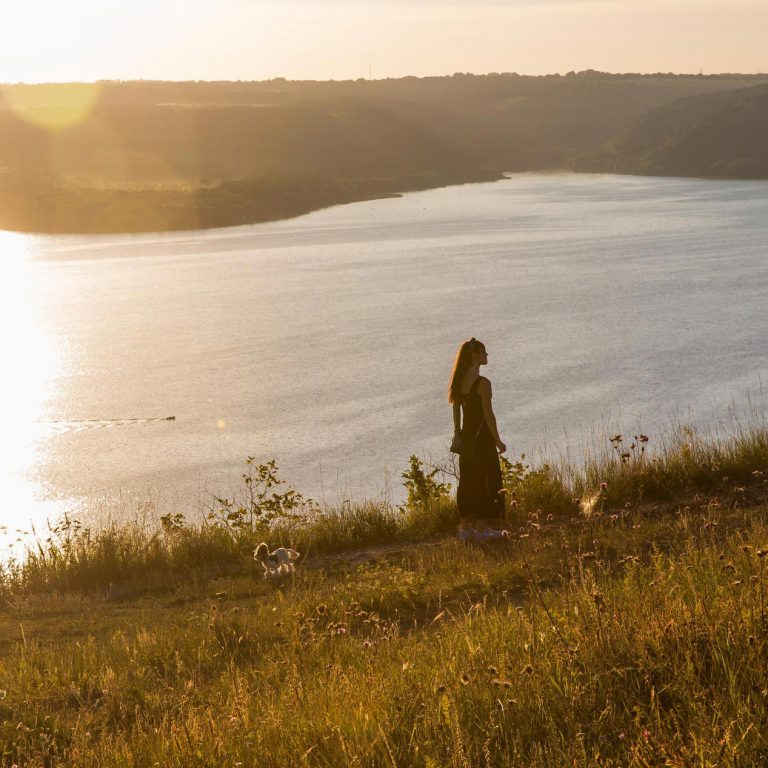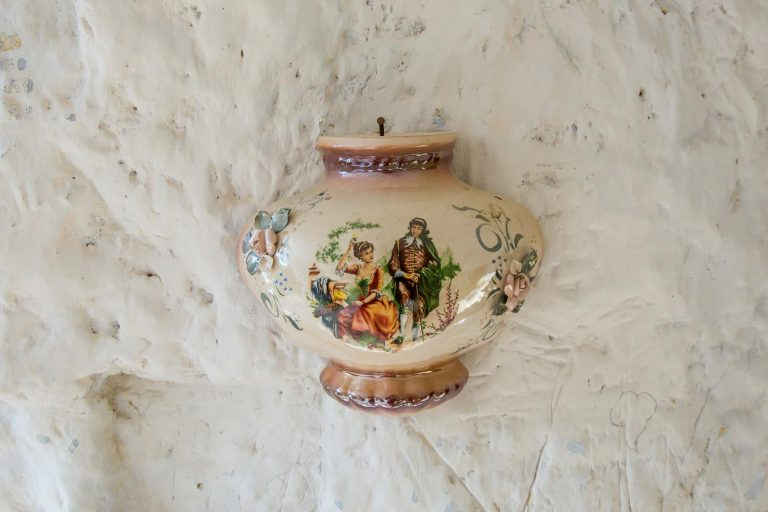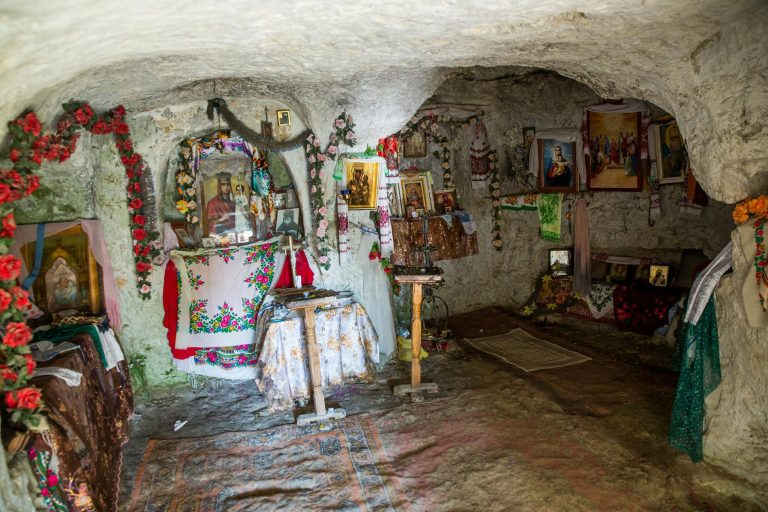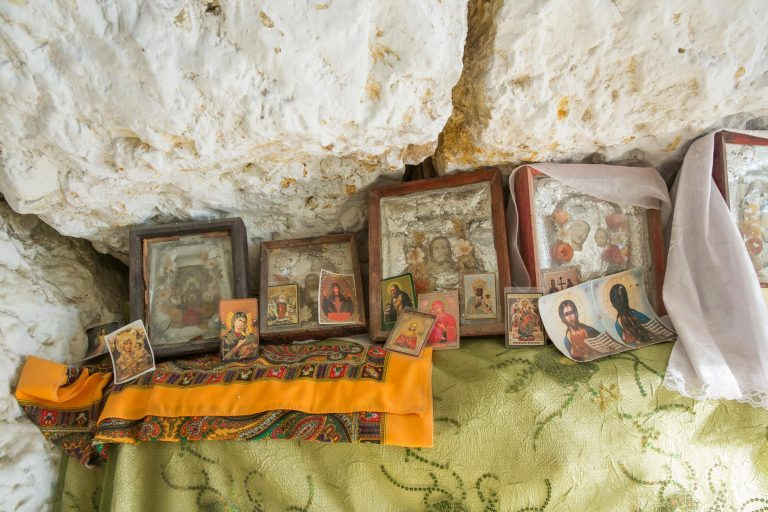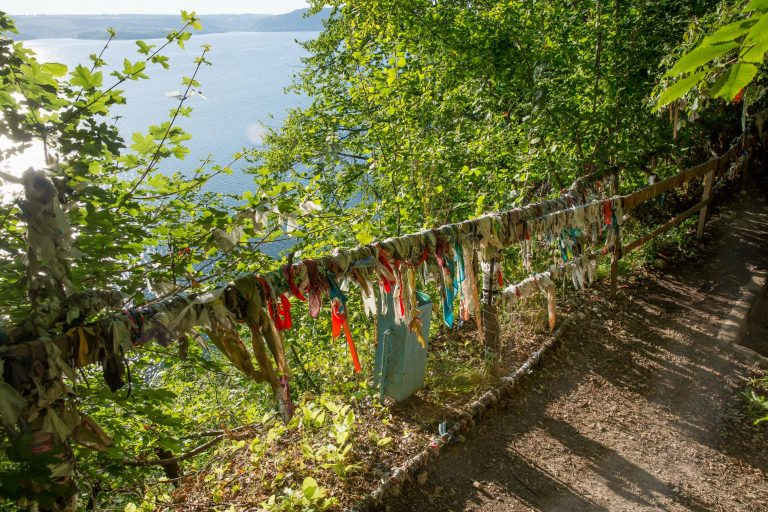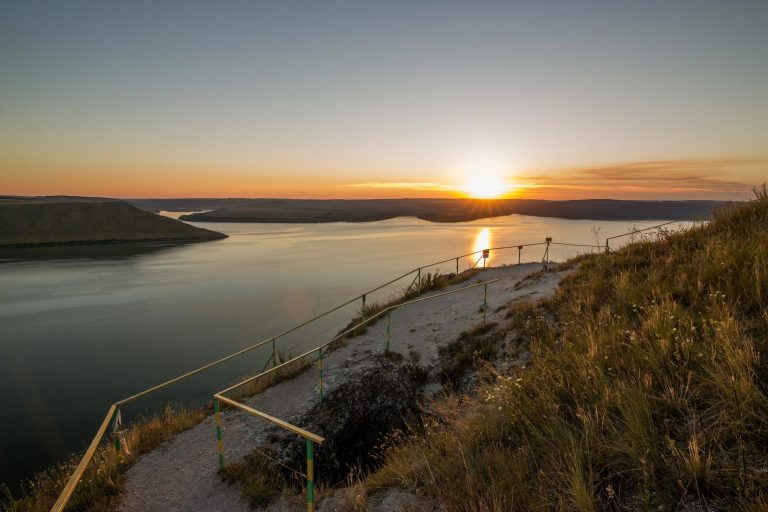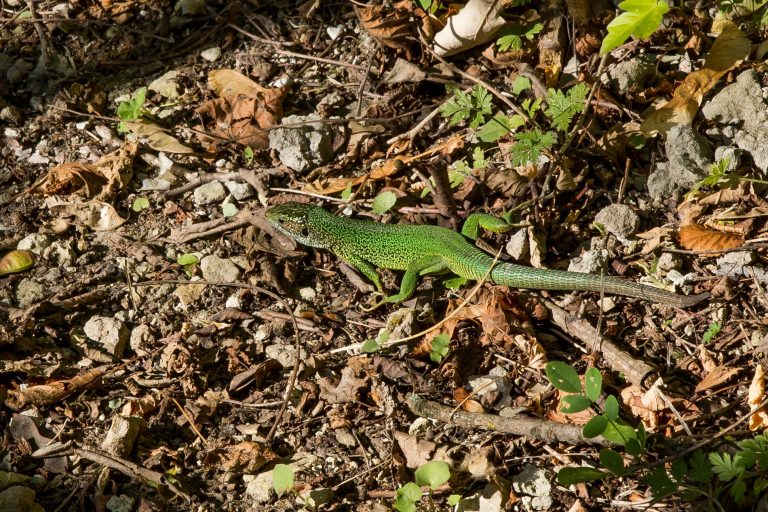Bakota is a submerged village in Podillia near Kamyanets-Podilsky. Nowadays this place is known for its incredible landscapes and total silence. Half a century ago hundreds of families left their homes and farms there. The people were evicted and the village was flooded to build a reservoir here for a powerful hydroelectric power station. Bakota’s native Taras Gorbniak was 27 years old when he was evicted from his home with his family. Today he guides tours to places where he once lived.
At first Bakota used to be a city. First mention about it is dated 1240 year as the biggest administrative center of the Lower Dnipro with population over three thousand people. In XII-XVI centuries the land between Dniester and Bug rivers was called Rus Dolna where Bakota was the capital of that province. There was an intersection of overland and nautical trade routes.
The word “bakota” is known in cultures of different nationalities. In Gabon and Congo there is a tribe bakota (or kota), there are two settlements in India with identical name. The third of inhabitants of village Fytkiv that is located at Prykarpattia have surnames Bakota, at Volyn region there is a village called Bakota, at Zakarpattia (Transcarpathia) – Bakty.
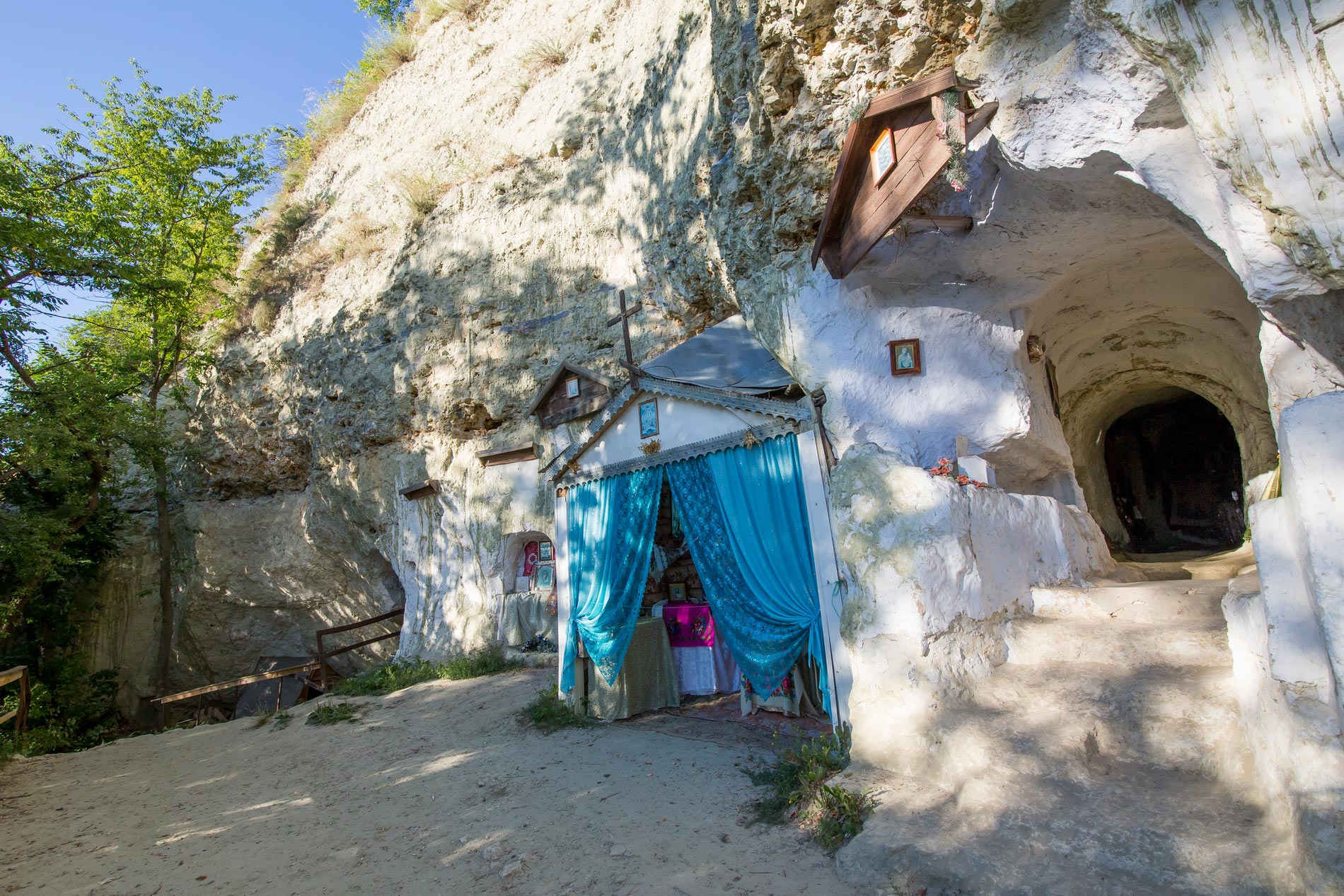
Translated from Keltic “Bakota” means a valley, in Spanish it is a dip. In Romanian language it`s a piece of bread, in Turkish – to see far. Taras Gorbnyak lists all the variants:
– And Sanskrit? If we take as a basis the word “kot” – it means a castle. If “baka” – that’s a stork. If you take the “bakhata” – this is an excess of something, too much of something. If you take two words “phata” and “atata” – it would mean a sharp turn of a river under a mountain. And, finally, “phati” – faithful, loyal. Now you give me the answer: what does not correspond to this place and what is the initial one?
Each capital has a grand temple. That temple in Bakota used to be Bakota’s St. Michael’s Monastery, which was established in XII-XIII centuries on the top of White Hill. Once, at the place of the Monastery there was Slavic Native Faith (Ridnoviry or Neopaganism) pagan temple, the oldest archaeological finds from that temple are dated II century B.C.
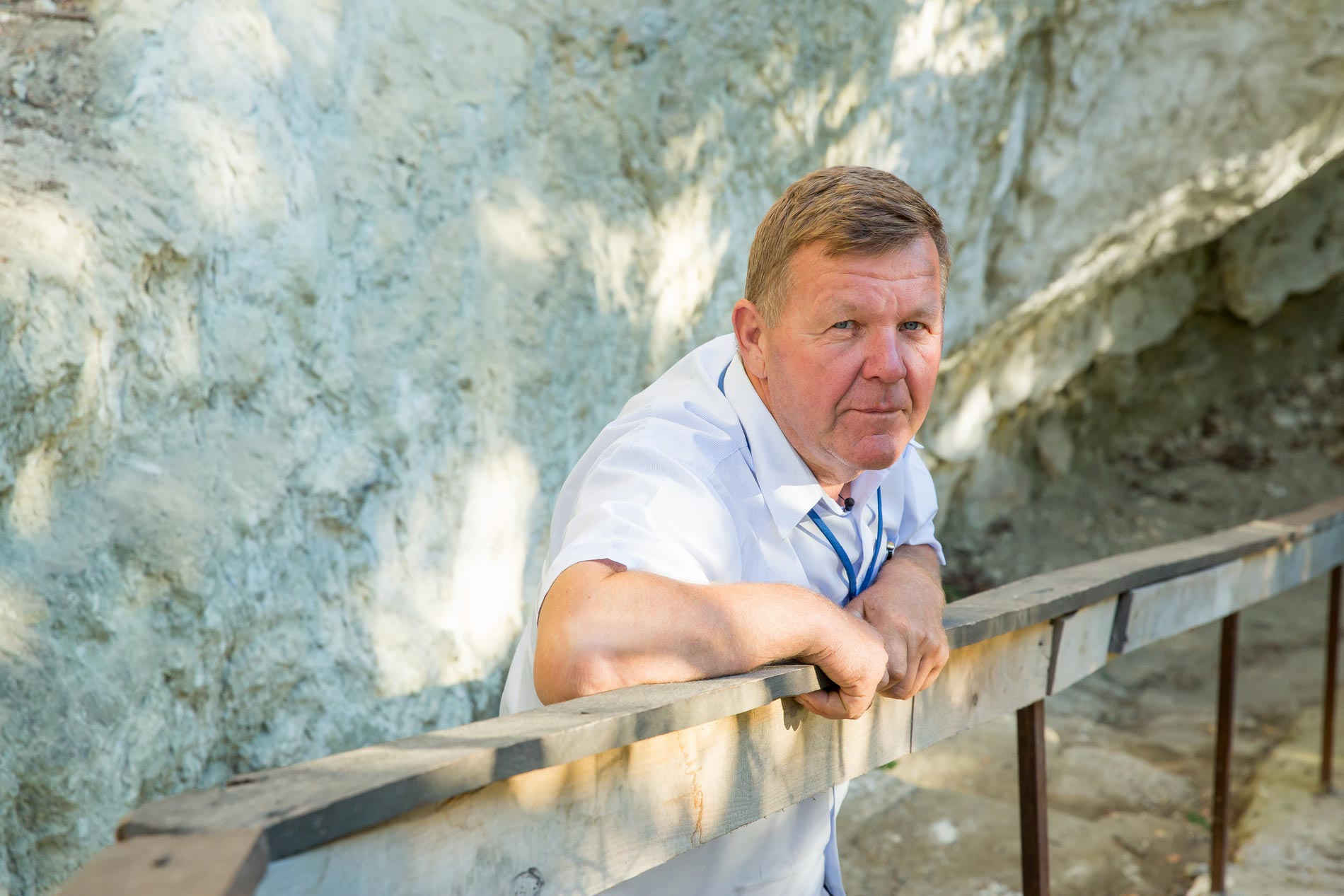
It seemed like the White Hill has got its name because of white stones – limestone. However, in Sanskrit word “white”means “cave, lair”. Apparently, at some period of time karst caves or something similar occured in a mountain giving people a shelter from wind and rain. Monks of the monastery used to live in one of the caves, that is preserved to this day.
In 1981 during the construction of Novodnistrovska hydroelectric power plant all the population of the region was evicted to neighboring cities. Bakota along with other villages was submerged.
– 16 thousand hectares of rich soil, 100 hectares of forest, numerous vineyards and gardens, 28 defunct villages. That’s the price. The price of this best place which was payed by people.

Currently, it’s a reservoir of 200 km long, the floodplain is 1590 hectares.
The construction of the Novodnistrovska hydroelectric power plant had started with an order from Moscow to build a cascade of a hydroelectric power station on the Dniester river. Residents of Bakota could not imagine the entire power of the cascade, although at that time only three hydroelectric power stations were planned to be built. The use of water as an energy resource involves the operation of two turbines: one works as a generator, and the other one – as a pumper that pumping water up. The system is unique and does not harm the environment.
Taras says Bakota was a unique natural place before the construction of a hydroelectric power station. From the flood, winds, and heavy rains the village was protected by the canyons, the soil was very fertile, the valley had its own microclimate, the water was extremely clean: it was potable, it also was inhabited by trout and crayfish, and the river itself could be crossed in some places by fording.
The cave monastery
The history of Bakota’s St. Michael’s Cave Monastery has started back in pre-Christian times. Age of caves reaches almost 4 thousand years. Almost all this time they served to worship natural elements. Until now, some pagan artifacts have been saved: a man’s foot etched in stone, stone idols and altars. This page of history is the least studied. Christianity, according to Taras Gorbnyak, arrived to this area only in the XI century.
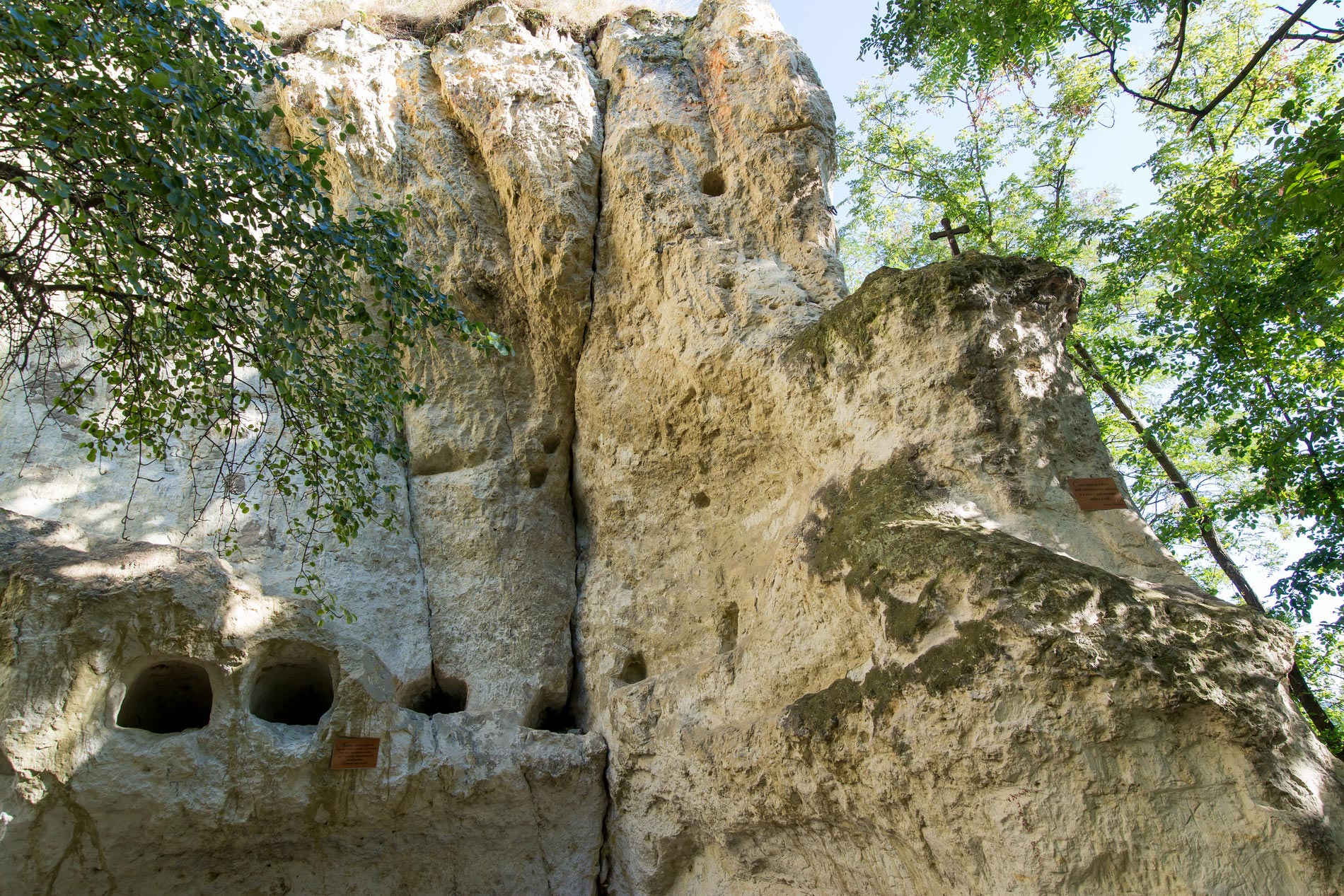
Bakota’s St. Michael’s Cave Monastery has an inverted structure: usually the church is higher than cells. In the case of Bakota, the caves arose much earlier and at the time of the establishment of the monastery a place for prayers was located there.
In the XV century Bakota was situated on the border of two states: Poland and Lithuania. One of the first centers of Christianity in this region was forced to cease its existence because of the aggressive behavior of Catholics. In year 1620 there was an earthquake that buried the monastery with ground. Many years later a church was built on the site of monastery caves, which during the XX century undergone transformations several times: depending on the regime, there were or were not conducted services. From 1918 to 1944, the path that now leads to the church was used only by border guards. Then Bakota was on the border with Romania:
– Yes, there used to be a border with Romania here for 22 years. You know, today we are joking about it, but back then there were such horrible living conditions that today it is even hard to imagine. It was forbidden to swim, to catch fish, to herd cows. In each village there was an outpost, each village was surrounded by 2 meters wall. You were not allowed to sing, to whistle, you could not walk in colorful clothes too. The border guards were all over the area.
slideshow
Grandparents of Taras Gorbnyak were born and raised in this valley. Due to the fact that the settlement was located on the borderline, his grandfathers were sent to the Gulag in 1930s, and from there – on the construction of the White Sea-Baltic Canal. During those times it was believed that if you live near the border, then you are certainly engaged in smuggling. Upon returning, the man faced another problem: then the decree was already in force that previously convicted persons had no right to reside in the 50-kilometer zone from the border. He managed to return back home only during the war years.
Since childhood Taras has visited the local church, but could not enter the cave, because it served as the altar. A few years later, under the slogans “Religion is an opium of the people”, secondary school students manually destroyed the temple instead of attending shop classes. The cave Taras was able to enter after it was destroyed: no one dared to pray anyway.
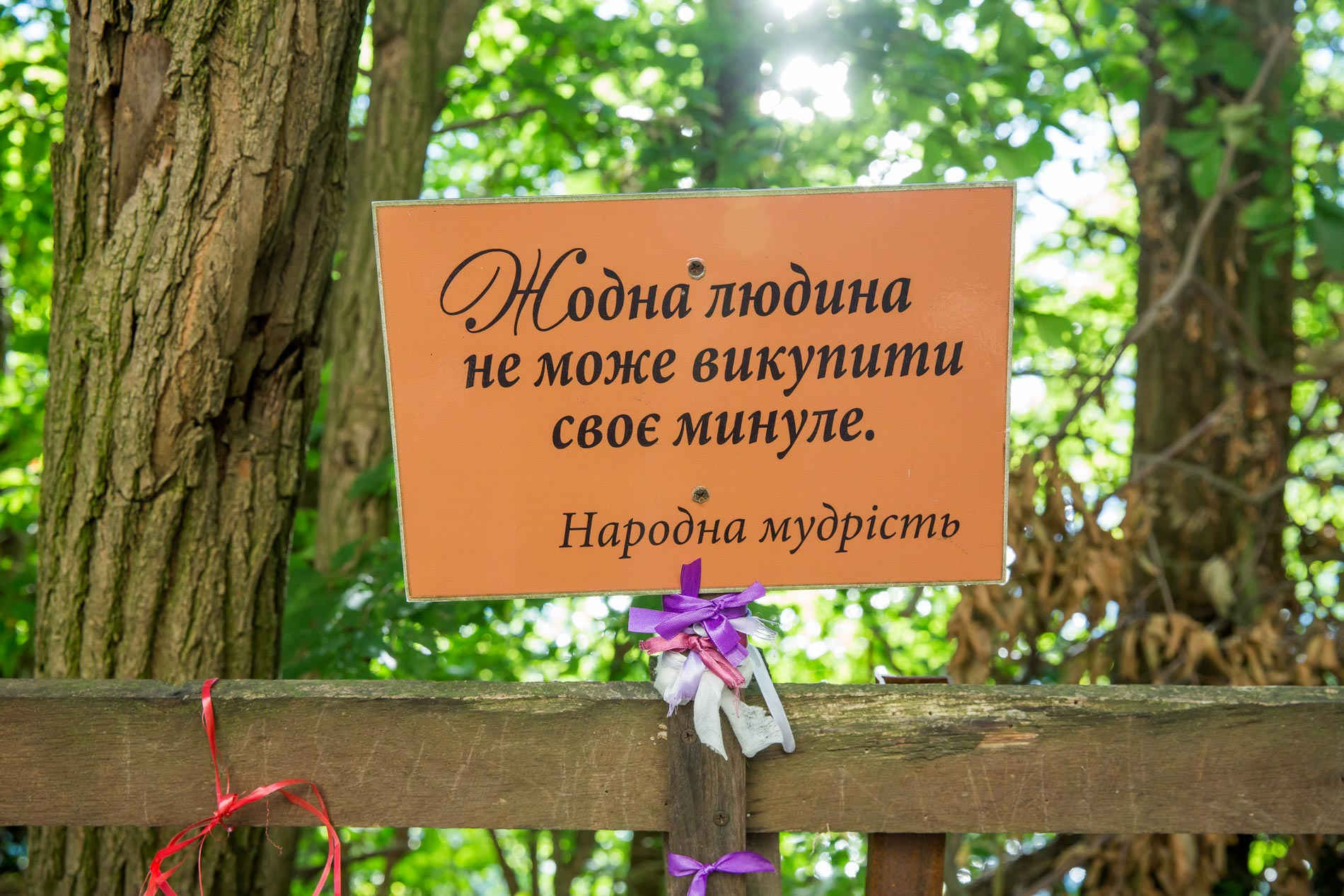
Today, the church is functioning without any restrictions. There is no priest in it, there is no denominational division. Orthodox, Greek-Catholic icons and the icon of God the Father stand next to each other:
— Today it is a monument of national importance, which performs a single function: not to divide people by the confessions, to allow everyone to walk in. Nowadays, it is a tourist attraction for guests not only from Ukraine. You know, precisely this uniqueness, the spirituality of these caves attracts many people. You do not see any security guards here. The place is functioning.
Taras believes that the place continues to exist, because energy here is extremely powerful. He says people come here to be treated:
– The first thing is pure good water. The second one is the sacred place with good energy. And the third – is the faith of a person.
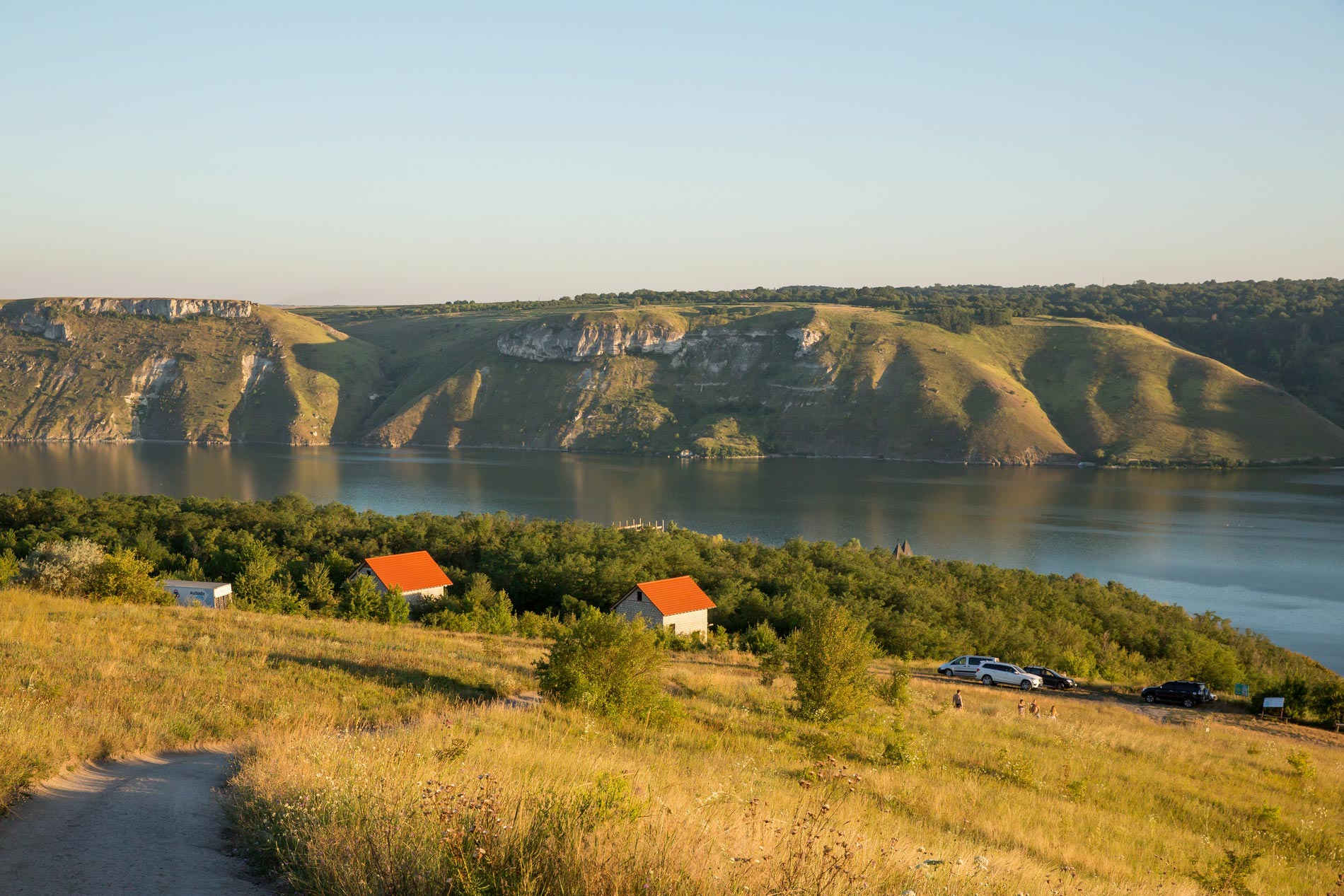
Eviction
Taras Gorbnyak works as a guide and tackles the main myths about Bakota. He left the valley at the age of 27 and now he tells tourists its story:
— A reservoir was formed, which nowadays is recognized as the best natural place of Ukraine in the category of “7 natural wonders”. How to explain it? I lost my homeland, and at the same time on the basis of my homeland the best place of Ukraine was formed. Is this a pro or con? How to recognize it?
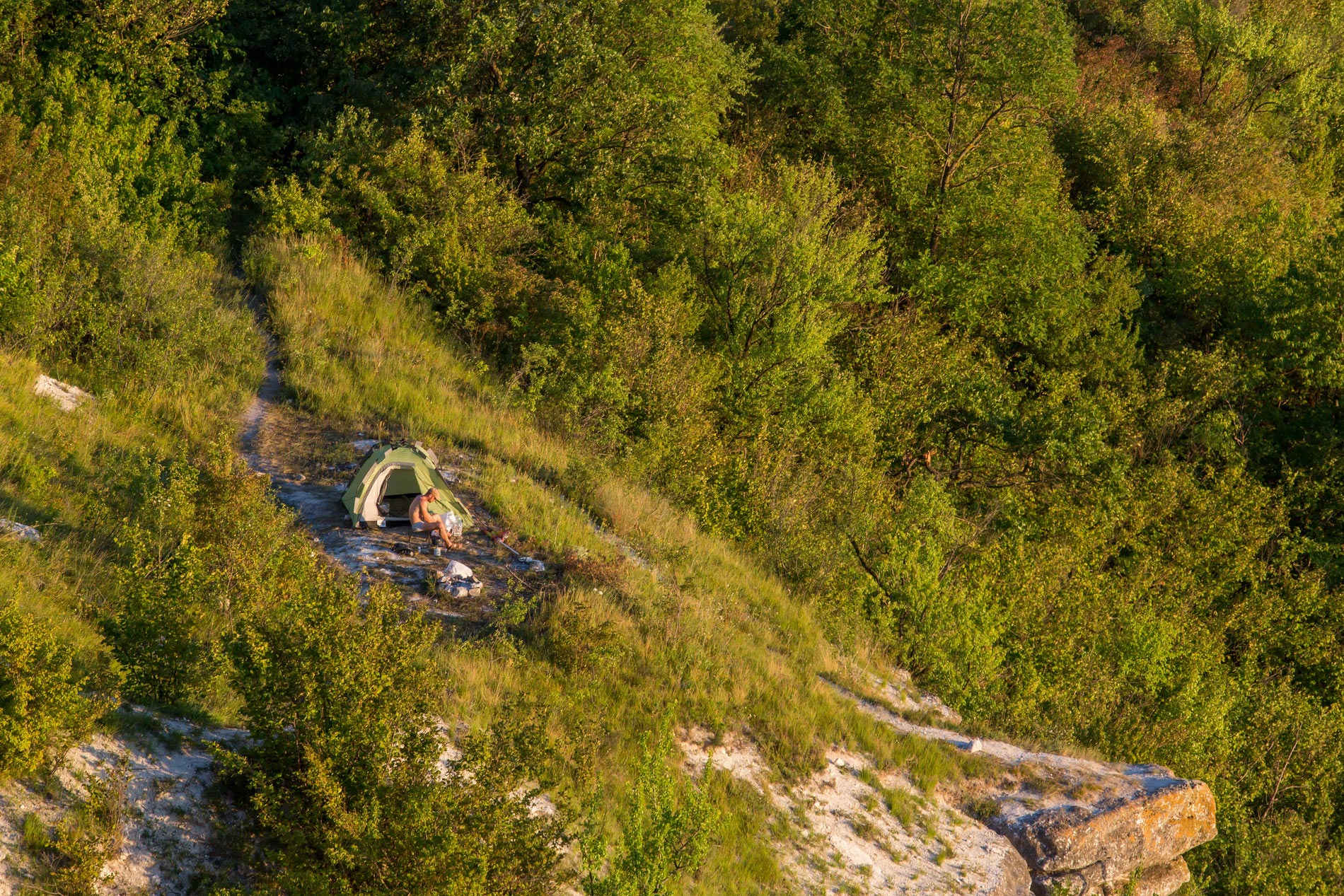
The resettlement of villagers had lasted eight years, and filling the valley with water had lasted another six years. The state then compensated only a small part of the expenses, and the people of respectable age who could neither buy a new home nor build it, the state allocated the land for:
— The resettlement requirements for people who lived here was actually a little rough. You would receive the 20% compensation that the state returned only in case if you destroy your own house, cut down the trees in your garden. So that you actually demolished the family nest with your own hands, which your grandparents, your parents and yourself have gained. And that is why I am the one of those who destroyed their houses. Otherwise you will not get 800, 1000 or 700 karbovanets. Then it was annual income or even more.
Most residents of Bakota haven’t ever seen a train in their lives until then, several times during their lives they have seen an airplane that could fly over the canyon, and they never travelled outside the valley. Their land was the most precious for them, because they have invested their soul in it.
slideshow
On holiday of the Protection of the Holy Virgin people came to the dilapidated village: someone had already moved from here, and someone did not dare yet, stall for time. Taras recalls that they danced, had fun, but there was tension inside, because each of them realized that this evening in the valley was the last one for them:
— Someone said: let’s go to the center of the village. They all went together, including children, cried a lot. The village had already had no power. They walked and walked, reached the center, all gathered in the circle, they stood on their knees and went away. You see, how much the sense of such attachment to the land that it is still genetically preserved.
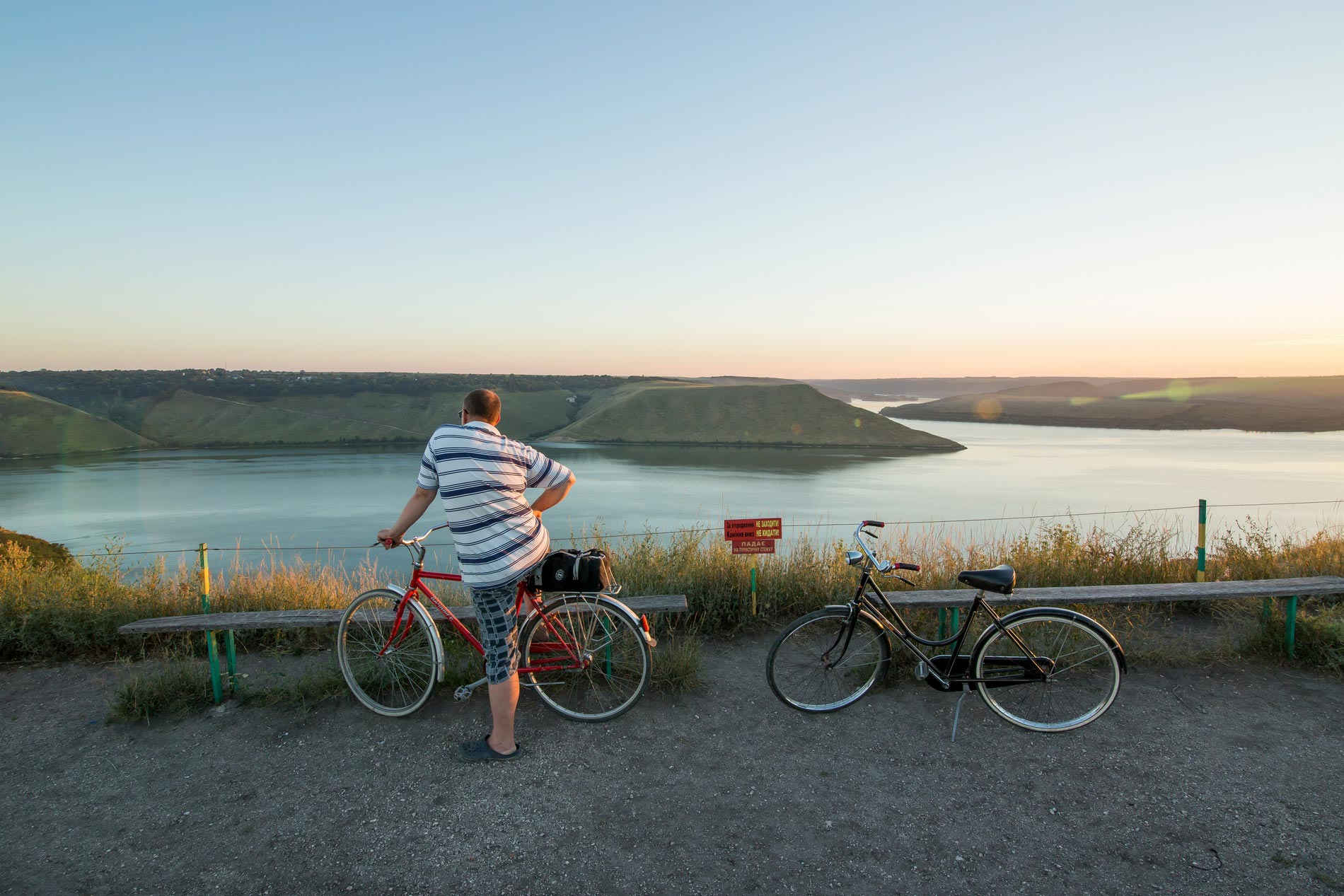
There, where people swim now, someone used to have a backyard. There, where the tourists put tents, there used to be a street. For 37 years of non-existence of the village Taras has already held two meetings of Bakotians – internally displaced persons. He loves this place, for him Bakota means it all:
— You know, just like the burdock seed sticks to your pants, every word connected with Bakota sticks to me now. It’s the most important for me.

